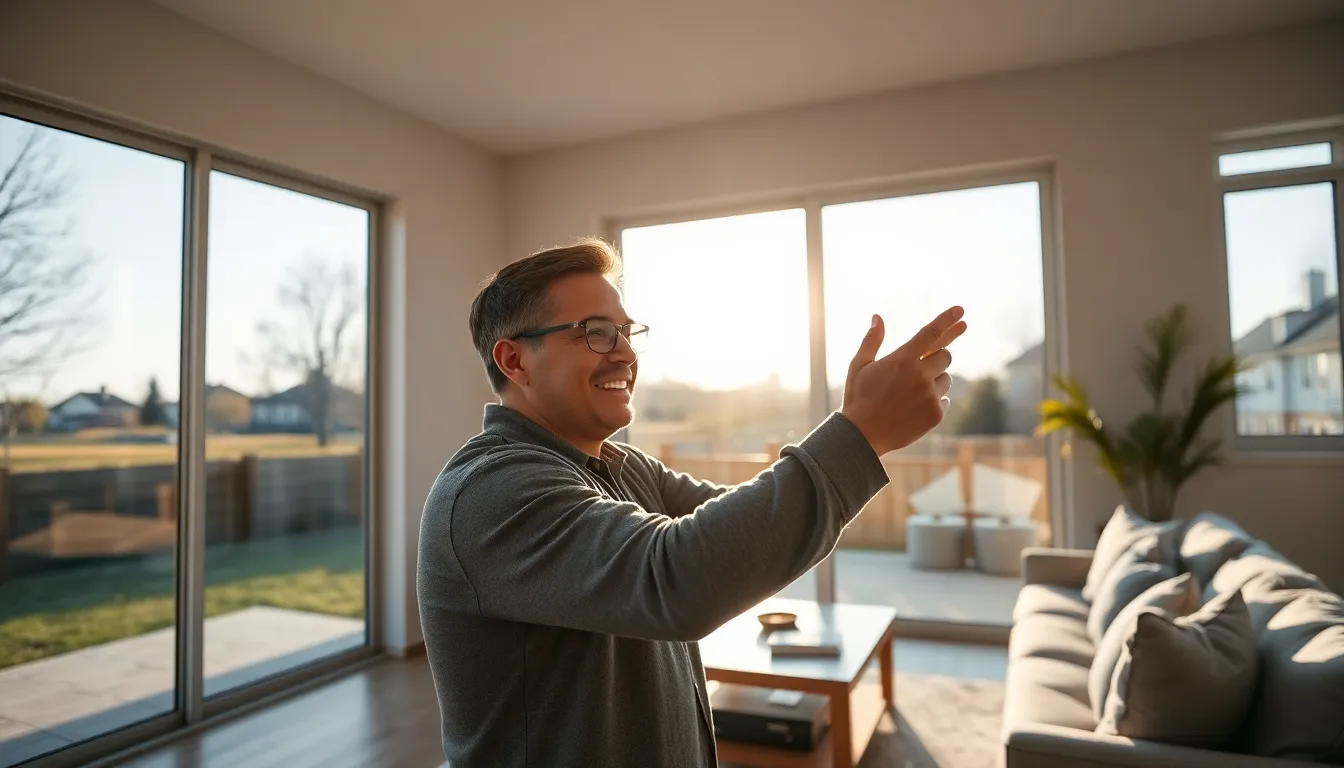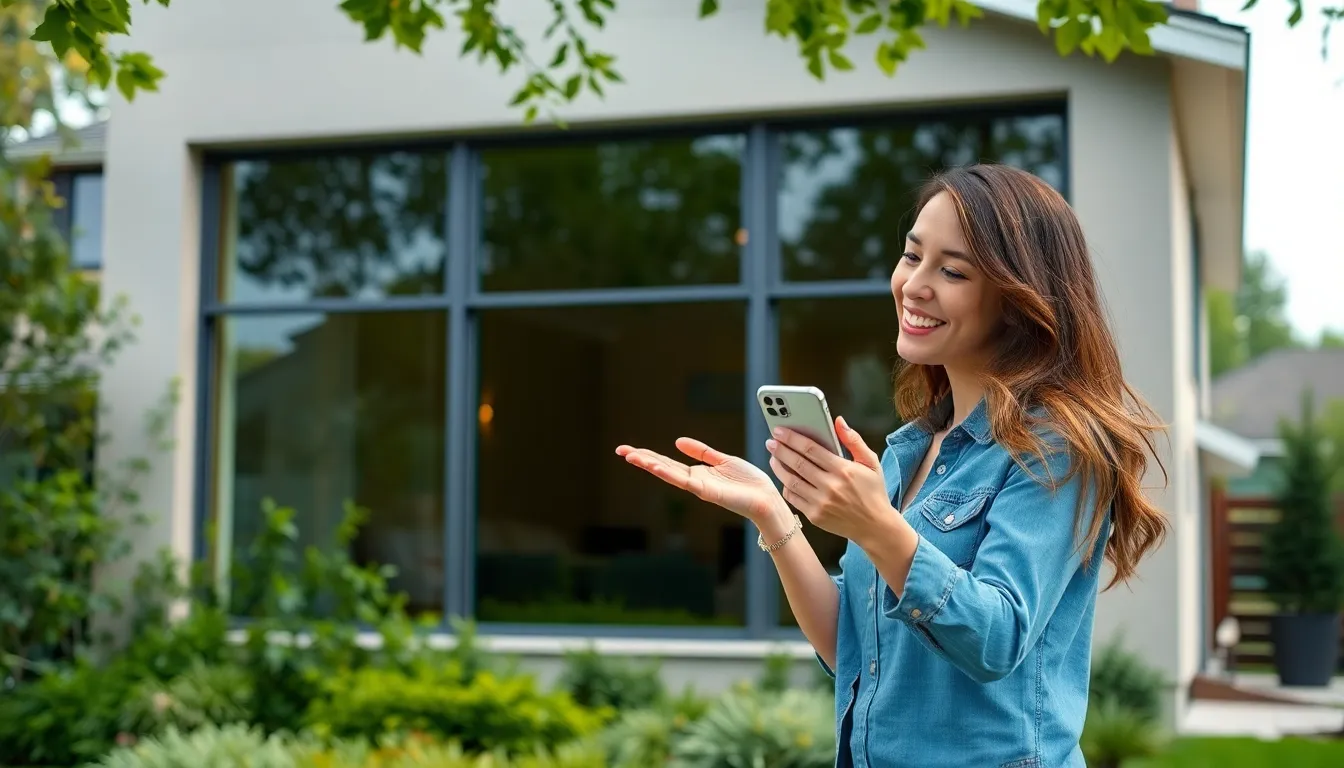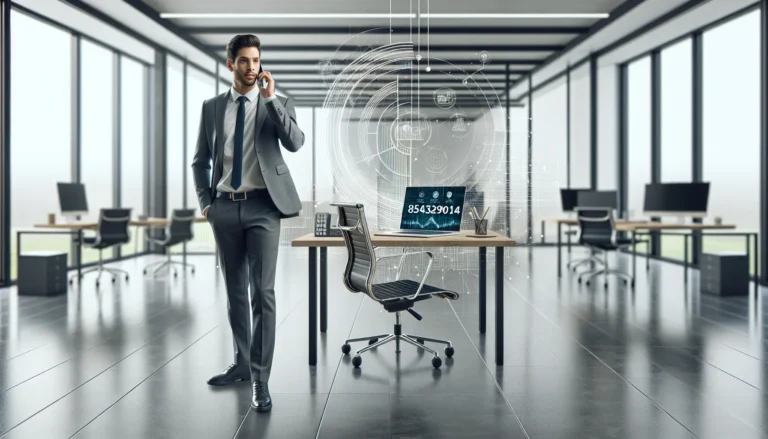Imagine a home that adjusts its windows like a chameleon changes colors. Smart windows are here to revolutionize the way we experience natural light and energy efficiency. These high-tech marvels not only enhance comfort but also give homeowners the power to control their environment with just a tap on their smartphones. Who knew windows could be so smart?
Table of Contents
ToggleOverview of Smart Windows for Homes
Smart windows utilize advanced technology to adjust their transparency and heat properties in response to environmental changes. These windows enhance energy efficiency by regulating heat gain and loss, contributing to lower utility bills. Homeowners benefit from increased comfort as smart windows reduce glare and provide optimal natural lighting.
Integration of smart windows with home automation systems allows users to control settings via smartphones or tablets. Convenience plays a significant role, enabling adjustments based on personal preferences or solar conditions. Manufacturers design these windows with various technologies, including electrochromic, thermochromic, and photochromic coatings. Each technology offers unique advantages, such as dimming automatically or changing color based on temperature.
The environmental impact of smart windows is notable as they significantly reduce reliance on artificial lighting and temperature control systems. Homes equipped with these windows achieve better energy ratings, making them more appealing in the real estate market. Moreover, the aesthetic appeal of smart windows enhances the overall look of a home, providing sleek, modern design elements.
Smart windows also lead to a healthier living environment by improving air quality. Proper ventilation and UV protection contribute to reduced indoor pollutants. Increased awareness of sustainability has driven the adoption of smart windows, aligning with trends toward eco-friendly living. As technology advances, the future promises even greater efficiencies and more robust designs in smart window options for homes.
Benefits of Smart Windows

Smart windows provide numerous advantages for homeowners, promoting efficiency, comfort, and aesthetics.
Energy Efficiency
Energy efficiency stands as a primary benefit of smart windows. These windows significantly reduce the need for heating and cooling systems. By regulating heat gain and loss, they help maintain a stable indoor temperature. In fact, studies show that homes with smart windows can save up to 30% on energy bills. Homeowners enjoy lower utility costs while decreasing their carbon footprint. Furthermore, smart windows minimize reliance on artificial lighting, enhancing natural light usage. This technology also contributes to better energy ratings for homes, making them more appealing in the real estate market.
Improved Comfort
Improved comfort emerges as another key advantage of smart windows. Glare reduction enhances the overall indoor experience while maintaining optimal lighting. Natural light flows through the home without overwhelming brightness. Homeowners have greater control over their environment, adjusting window settings according to personal preferences. Temperature regulation minimizes hot spots, creating a more consistent climate throughout the house. Enhanced air quality accompanies proper ventilation, benefiting residents’ health. By integrating with home automation systems, smart windows simplify the management of natural light and temperature, making life more comfortable.
Types of Smart Window Technologies
Smart window technologies enhance energy efficiency and comfort in homes. Various systems exist, each providing unique benefits.
Electrochromic Windows
Electrochromic windows adjust their tint in response to electrical currents. These windows can transition from clear to dark depending on the user’s needs. Proximity to sunlight often triggers these changes, which helps control heat and light. Homeowners experience reduced glare and improved privacy with these windows. Energy savings can reach up to 30 percent, leading to significant reductions in utility bills. Maintenance requirements are minimal, making them a practical choice for long-term use. Electrochromic windows integrate seamlessly with smart home systems, allowing for easy control through mobile devices. Enhanced aesthetics often complement modern home designs, adding a sleek touch.
Photochromic Windows
Photochromic windows react to UV light, automatically adjusting tint levels based on sunlight exposure. This technology provides rapid changes, darkening in bright conditions and returning to clear when the light diminishes. Homeowners enjoy increased comfort without the need for manual adjustments, enhancing user experience. Energy efficiency improves, as these windows help regulate indoor temperatures and reduce reliance on HVAC systems. With long-term use, property owners may benefit from reduced energy costs and improved space utilization. These windows often feature self-cleaning properties, minimizing maintenance needs. A contemporary appearance often fits well with various architectural styles, making photochromic windows an appealing choice.
Installation and Maintenance of Smart Windows
Installation of smart windows requires careful planning and professional assistance. Choosing a seasoned contractor ensures proper fitting and optimal performance. Professionals often assess existing framing and structural conditions before proceeding. Most smart windows can integrate seamlessly with home automation systems, enhancing user experience.
Proper installation can involve necessitating specialized equipment for the accurate adjustment of electronic components. Homeowners may opt for electrochromic or photochromic windows based on their preferences, as both types deliver significant benefits. Expertise in handling electrical connections and sensor placements is crucial for achieving desired functionality.
Maintenance of smart windows remains relatively straightforward. Regular cleaning with non-abrasive solutions preserves clarity and operational efficiency. Homeowners should inspect seals and frames periodically to prevent moisture intrusion. A technician can easily perform function diagnostics, ensuring that electronic systems operate correctly.
Simple upgrades can enhance the functionality of smart windows over time. Replacing outdated components with newer technologies can lead to improved energy efficiency and performance. Many manufacturers offer warranties that cover product defects, making it advisable to maintain proper documentation.
Choosing to invest in smart windows entails considering long-term benefits, including reduced energy expenses and enhanced comfort. Installation and maintenance, when managed effectively, ensure these windows continue to deliver their intended advantages. With a focus on professional support and routine care, homeowners can maximize the potential of smart windows in their living spaces.
Cost Considerations
Expenses associated with smart windows vary significantly based on several factors. Base pricing for standard smart windows ranges from $50 to $100 per square foot, depending on technology and style. Installation costs also contribute, typically adding $25 to $75 per square foot to the overall budget. Homeowners frequently select electrochromic options for their energy-saving benefits, which can lead to a return on investment over time.
Operating costs often reflect a reduction in energy usage. Smart windows can lower energy expenses by up to 30%, which results in savings that accumulate each month. Property owners may find that reduced reliance on heating and cooling systems not only cuts costs but also enhances property value.
Financing strategies play a role in managing upfront expenses. Many suppliers offer incentives, including tax credits and rebates, for energy-efficient home improvements. Several banks provide green loan programs specifically for eco-friendly upgrades, which homeowners can utilize to afford smart window installations.
Long-term savings must factor into overall cost consideration. Though initial expenses may be high, the energy efficiency benefits contribute to lower utility bills year after year. Homeowners should assess potential savings against overall expenditures, considering factors like regional climate and lifestyle habits.
Maintenance costs remain minimal, requiring only routine cleaning and inspections. Most smart windows feature durable materials that withstand wear and tear. Overall durability reduces the need for frequent replacements, further enhancing their cost-effectiveness. By factoring these various elements into the financial equation, homeowners can make informed decisions regarding smart window investments.
Smart windows represent a significant advancement in home technology that combines energy efficiency with enhanced comfort. By adapting to environmental changes they provide homeowners with control over light and temperature while reducing energy costs. The integration with home automation systems allows for seamless management through smartphones making everyday life easier.
With various technologies available homeowners can choose options that best fit their needs and aesthetic preferences. As sustainability becomes increasingly important smart windows not only offer immediate benefits but also contribute to a healthier planet. Investing in smart windows is a forward-thinking decision that promises long-term savings and improved living conditions.




